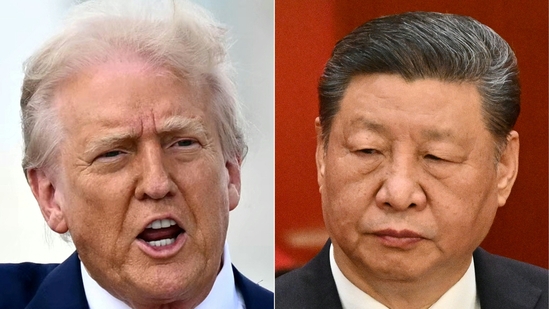In a sharp escalation of the ongoing trade war, China’s finance ministry on Friday announced an increase in tariffs on US imports from 84% to 125%, striking back at President Donald Trump’s sweeping trade measures targeting Beijing.
“The U.S. imposition of abnormally high tariffs on China seriously violates international and economic trade rules, basic economic laws and common sense and is completely unilateral bullying and coercion,” the Chinese finance ministry said in a strongly worded statement, according to Reuters.
The Chinese government also issued a stern warning: “If the US insists on continuing to infringe upon China’s interests in a substantive way, China will resolutely take countermeasures and fight to the end.” Beijing declared it would not back down or be deterred, even if Washington continued to impose additional duties on Chinese exports.
This latest move follows a series of tariff hikes initiated by Trump, whose universal duties on Chinese goods now total a staggering 145%, including a separate 20% tariff related to China’s alleged role in fentanyl production.
China had earlier raised tariffs to 84% in response to a previous US action, but this latest jump to 125% signifies that the conflict is no longer just a tit-for-tat, but a full-blown economic standoff.
As tensions rise, Chinese President Xi Jinping called on the European Union to side with Beijing, urging global powers to resist what he called Washington’s “unilateral bullying.” “China and Europe should fulfil their international responsibilities… and jointly resist unilateral bullying practices,” Xi was quoted by AFP as saying.
The mounting trade war has already rattled global financial markets. According to Bloomberg, major US-listed ETFs tracking Chinese stocks saw nearly $1 billion in sell-offs in a single day, as investors reacted to the worsening US-China relations.
Despite China’s attempts to shore up domestic markets with state-backed funds buying equities, many global investors remain cautious, with some even reducing exposure to Chinese assets amid the growing uncertainty.
While China insists it remains open to negotiations, the message from Beijing is clear: it won’t be backing down. The question now is whether Trump’s tariff blitz is part of a calculated strategy—or just reckless escalation with global consequences.








 India
India












